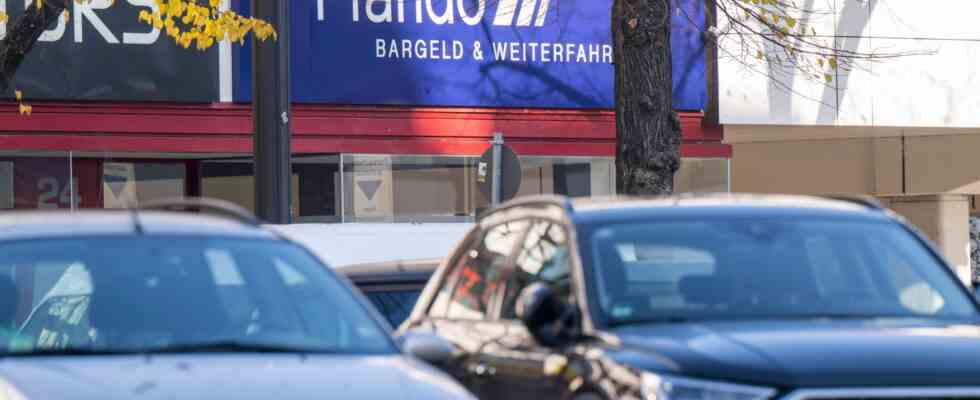Status: 11/16/2022 6:49 p.m
The Federal Court of Justice has strengthened the rights of consumers in financial distress: the car buyer Pfando acted immorally in at least one case. Is the business model of the controversial company still viable?
At Pfando, customers who are in financial difficulties sell their car and receive an amount of money that is usually well below the market price of the vehicle. Customers then rent the car back and can continue driving it.
In one of the negotiated cases, which were decided by the Federal Court of Justice (BGH), Pfando had bought the car from a Dortmund customer for less than half of the vehicle’s value. After only six months, almost 60 percent of the money received was transferred back to Pfando due to the rent paid. But the car still belonged to Pfando.
BGH confirms immorality
The lower court, the Hamm Higher Regional Court, had come to the conclusion that such a transaction was immoral according to Section 138 of the Civil Code and that it was usury. The Supreme Court has now confirmed this decision. The presiding judge of the 8th civil senate of the BGH, Rhona Fetzer, explained the reasons:
Due to the particularly gross disproportion between the purchase price paid to the plaintiff, which amounted to EUR 5,000, and the retail purchase value at the time the purchase contract was concluded, which amounted to EUR 13,700, a reprehensible attitude on the part of the defendant is presumed according to the case law principles recognized by the highest court.
In the end, Pfando had the Dortmund customer’s car auctioned off. Pfando’s lawyer, Brunhilde Ackermann, argued after the hearing before the BGH that the business model was advantageous for customers.
“Customers don’t have to undergo a credit check,” says Ackermann. “They say they need money, but I also want to keep my mobility. Why shouldn’t this business model, which corresponds to the will of both parties, be allowed?”
Customers complain about wrong advice
Years of research by ARD magazine plus minus have shown how Pfando’s business model often works in practice: the company buys the car from the customer for a maximum of half the value. Several customers accused Pfando of being wrongly advised in the branches.
the ARD was able to confirm this accusation through spot checks. Test customers were incorrectly informed about the contracts at crucial points. Pfando has always denied this allegation and referred to regular employee training.
Many customers also agreed to the Pfando deal because they thought they would be able to buy the car back when the contract ended. According to the contracts, however, they had no right to do so.
The court sees no violation of trade regulations
Some higher regional courts had decided in the lower courts that Pfando’s business model had also violated the trade regulations. The company operated an illegal buyback deal. However, the BGH did not follow this legal opinion.
For lawyer Holger Schilling, who represents more than a hundred former Pfando customers in the lower instances, this part of the supreme court’s decision is not decisive. It is important that the BGH classified Pfando’s business model as usury.
“Conditions also in almost all newer contracts”
In his opinion, this also applies to more recent contracts from Pfando customers that he is aware of: “What the Senate said today on the question of usury is much more serious: The conditions that prompted the Senate to affirm usury are also in the more recent contracts that we are aware of and that we have, in a comparable form in almost all cases,” says Schilling.
“We see here a clear vote for our argument for all cases that we have brought before the court, namely that usury has been affirmed.”
Pfando representatives did not want to comment after the verdict was announced. It therefore remains unclear what conclusions the company will draw from today’s decision – and whether it intends to stick to the previous business model. In any case, Pfando has to pay compensation to the Dortmund customer. He only has to have the purchase price credited to him.
BGH: Contracts by car buyer PFANDO immoral
Philip Raillon, SWR, 11/16/2022 5:40 p.m

